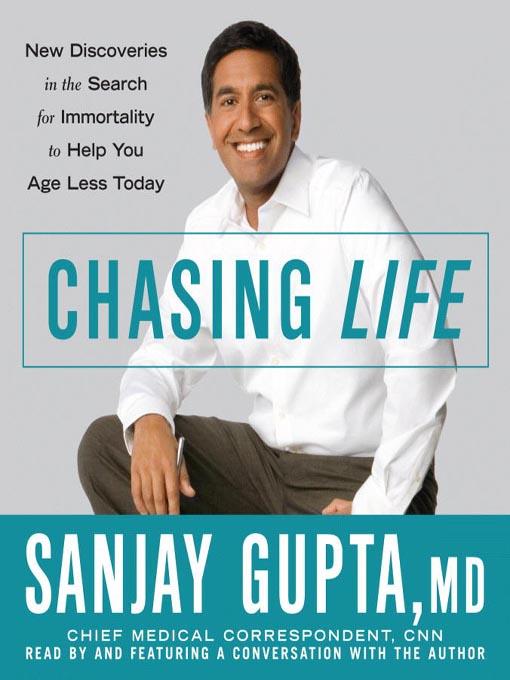
Chasing Life
New Discoveries in the Search for Immortality to Help You Age Less Today
کتاب های مرتبط
- اطلاعات
- نقد و بررسی
- دیدگاه کاربران
نقد و بررسی

With stories and research from all over the world, the TIME and CNN medical correspondent describes the eating, lifestyle, and emotional patterns of people who have long, healthy lives. The value of exercising, restricting calories, and reducing sugar and fat intake are well known, but it's fascinating to hear these habits supported in such diverse ways. With his experience on camera, Gupta knows how to present complex information in sound bites anyone can comprehend. Where this experience fails him is in his vocal delivery. In spite of the familiar ring of his voice, his intonation in this longer vocal performance sounds repetitive and predictable. The program concludes with a personal interview in which he answers questions about his career and his goals for this book. T.W. (c) AudioFile 2007, Portland, Maine

February 19, 2007
Readers seeking the key to everlasting life will find some clues in neurosurgeon Gupta's survey of the latest research on longevity. Gupta, CNN's chief medical correspondent, touches on recent breakthroughs as he offers some basic guidelines for adding years to what he and other aging experts call "health span." The goal, Gupta says, is not merely to live longer. To help readers live longer and better, he boils down conflicting health advice and makes some surprising prescriptions. For example, it is not what you eat, but how much you eat that affects longevity; vitamin supplements may be a waste of time and money; and a little upper-body strengthening is far more effective than an hour on a StairMaster. To support this advice, Gupta relates the experiences of a 103-year-old woman from Okinawa; a former executive who began training at age 86 and is a record-breaking sprinter at age 92; and others who are aging well by staying active, eating wisely, being positive and maintaining strong social networks. While stem cell injections, nanotechnology, cryonics and other possible therapies are on the horizon, Gupta tells readers that extending life today is as easy as eating less, moving more and exercising the brain. While Gupta's mix of futuristic science and do-it-yourself advice is far from seamless, many readers will find the lessons in his tales of the long lived worthwhile.

March 1, 2007
Just exactly how do we age? Why do some societies have so many more centenarians than others? Is immortality possible? These questions form the basis of this book by CNN's chief medical correspondent, Gupta (neurosurgery, Emory Univ. Hosp. & Grady Memorial Hosp., Atlanta). He explains new scientific discoveries that are being made on the cellular process of aging and possible means of regeneration and shows that some previous assumptions about optimum health practices are being proved wrong. Supplements may be a waste of your money; deep breathing is more important than you ever knew; cell phones do not cause cancer; and long life may be more about your social network than your exercise plan. Gupta covers stem-cell therapy and degenerative diseases as well as practical advice to prevent aging. This is a fascinating look at the research being done and its promise for the future. It will tell you how to live not only longer but also better. Highly recommended.Susan B. Hagloch, formerly with the Tuscarawas Cty. P.L., New Philadelphia, OH
Copyright 2007 Library Journal, LLC Used with permission.

























دیدگاه کاربران